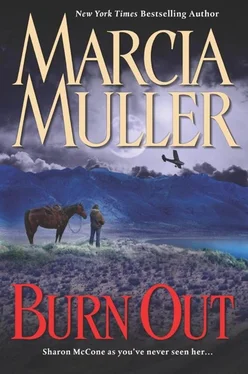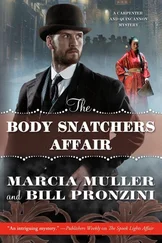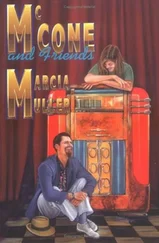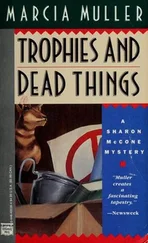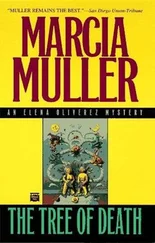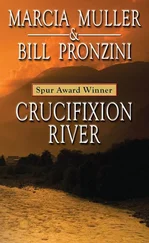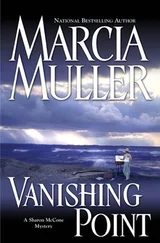It’s the first time Bud has ever refused Davey a way out. Davey snaps again, shoots his brother in the back.
Now he’s got two bodies on his hands. The one in the desert-which he’s zipped into a sleeping bag from the victim’s own truck-doesn’t matter, he decides, since the only other people who knew he was at his ranch are also dead. And the boat trailer provides a perfect solution for hiding his brother’s corpse: put Bud’s body into his-Hanover’s-own car, the car onto the trailer, drive the Forester up to a remote spot in Toiyabe National Forest, dispose of both. Hitch the trailer to his car-because a vehicle with a boat trailer and no boat would attract a lot more attention when found in the forest than the SUV of a hiker who apparently went astray-and return to the ranch. Then get the hell out of there.
If that was what happened, the trailer might still be at the ranch. Maybe the keys to Bud Smith’s Forester, too. Since Hanover had driven it into the woods, he might have pocketed them.
And the ranch house was a probable crime scene. There could be material evidence-blood, fibers, fingerprints…
So?
Check out the property from the air, make sure it was deserted. And then get onto it and into the house. Look for something that would give Lark probable cause to obtain a search warrant.
Of course, those actions were totally illegal. Trespassing, breaking and entering. I could lose my private investigator’s license, go to jail. And I didn’t want to hinder the authorities in building a case against Hanover. While Lark was willing to bend the law when circumstances merited it, no way she’d be able to get a warrant based on information gleaned during an illegal search.
Well, what if my plane’s engine went out, and I had to make an emergency landing on the ranch? Wasn’t able to make radio contact with anyone? Was forced to hike to the house to ask to use the phone? Found no one there, but looked through the windows and saw something suspicious? Left and reported it to Lark?
Lark didn’t know enough about planes to realize that when you had an engine out, it didn’t suddenly start up again. She’d assume it was like a car’s flooded motor. And the roughness of the landing could explain the loss of radio contact.
Thin, but Lark wouldn’t be inclined to ask too many questions if a multiple murderer was brought to justice as a result.
Okay. I’d sleep on it. But first I’d run a search for the license plate number of Bud Smith’s boat trailer.
NOVEMBER 17
The morning air was crisp, the sky clear. The projected snowstorm had blown past in the night and was currently blanketing parts of Tuolomne County.
Amos Hinsdale arrived at the UNICOM shack as I was preflighting Two-Seven-Tango. “You leaving?” he asked, genuine disappointment in his voice.
“No, just going out to take a look around.”
“At that ranch, you mean.”
I hesitated. Could I trust him? Yes, I could: in Amos’ world there was a brotherhood of pilots, and last night he’d allowed me to join it.
“That’s my approximate destination.”
The lines around his eyes crinkled. “Be careful. You got plenty of fuel?”
“Yes. I filled up at Independence yesterday.”
“Stop in when you get back. I’ve still got a couple of Canada Drys on ice.”
“Will do.”
“And keep tuned to the UNICOM. If there’s any unannounced incoming traffic, I’ll contact you. Code word Reptile.”
We smiled at our little intrigue and shook hands before I climbed into the plane.
I turned the key in the ignition. The engine coughed and then a warning light flickered. Electrical system failure. There was a backup battery, but I didn’t know how much charge was left on it; recalling the way the engine had sounded when I’d returned here after my overflight of Toiyabe, I realized I might have been flying on battery for some time. Would I have missed the warning light then and also on the flights to and from Independence? Doubtful, but lately I never knew…
Well, I couldn’t take Two-Seven-Tango up without a certified mechanic’s okay. And I was no mechanic; neither was Amos.
I removed the key from the ignition, got out, and said to Amos, “Which of those rental planes of yours is the better?”
It was a thirty-seven-year-old Cessna 150-the type of plane I’d trained on-with a banged-up exterior, ripped-up interior, and crazing-small fractures-on the windshield. It preflighted well, though, and started strongly. The gauges were all functioning, and no warning lights flashed. I gave Amos a thumbs-up sign and taxied toward the runway.
A thousand acres of ranch land is a lot of territory to explore, even from the air, but I’d devised a plan. First I checked the house and outbuildings, putting the plane into slow flight, scanning for signs of habitation. None visible. Then I flew over the long airstrip-well paved and equipped with all the bells and whistles of a small municipal airport, including a large hangar. The hangar’s doors were closed; a faded orange windsock at midfield drooped limply. Easy landing day, no strong crosswinds. But I wasn’t planning on using this runway.
I kept flying to the southeast, looking for a landing place that was far enough away from the house that I wouldn’t attract attention in case someone actually was in residence, but also within a reasonable hiking distance. A long ridge crossed the terrain, rough-surfaced and dotted with small obsidian outcroppings. On the other side of it I found a flat, open area that once must have been cattle graze. I could put down and take off easily there. It would be a fair hike to the house, but I was wearing sturdy boots and had bottled water in my backpack.
Bottled water, binoculars, and Hy’s.45.
I didn’t want to land just yet, though. Instead I headed back toward the airstrip and house, thinking a second slow overflight might scare up anybody who hadn’t been curious enough to come outside the first time.
No one.
Okay, back toward my selected landing place. I spoke into the radio’s microphone. “Tufa Tower traffic, Reptile. Anything?”
“Negative, Reptile.”
Midway between the ranch compound and the jagged, rocky ridge, something strange caught my eye. I glanced forward at the engine cowling. Nothing. Maybe I’d glimpsed a black bird narrowly missing the plane.
A few seconds later I saw it again: a smoky curl drifting from the edge of the cowling. The paint there looked bubbled. Suddenly bright orange flames flickered upward.
Engine fire!
Fuel-fed, not oil-fed-had to be from the color of those flames.
Panic made my limbs rigid, fused my gaze to the flames. I’d been in a serious emergency situation once before, but long ago-
Time telescoped as fear turned to rage. My life was back on track: I’d made my decisions and was set to enjoy the future. And now maybe I was going to die because Amos Hinsdale hadn’t properly maintained his crappy airplane.
Focus. Do what you were trained to do.
Stubborn determination gripped me as I looked at the instrument panel. I was not going to die-not now, not like this. Emergency procedures from my old training manual flashed through my mind.
Forced landing, engine fire: Shut off the fuel supply. Keep the ignition switch on to clear the fuel lines. Lower the nose to maintain your airspeed.
My hands moved mechanically through the actions I’d practiced many times in simulated situations.
Now look for a place to bring this piece of shit down.
My altitude and airspeed were not enough to crest the ridge ahead to level ground or return to the airstrip. And that ridge was the worst possible place to try to land.
Читать дальше
